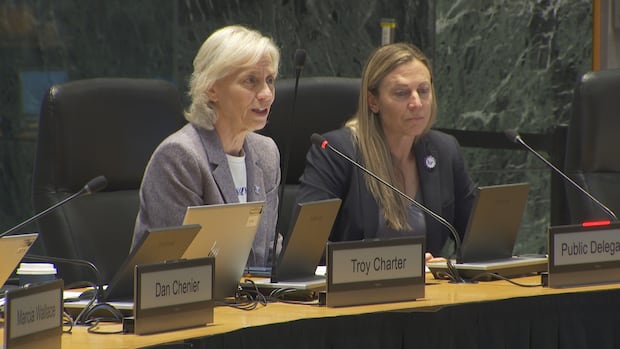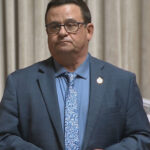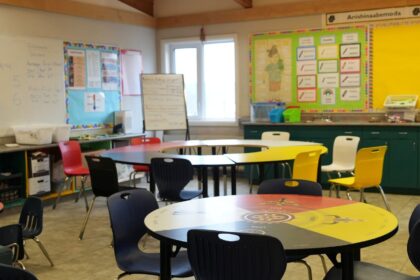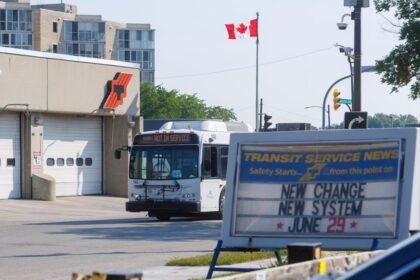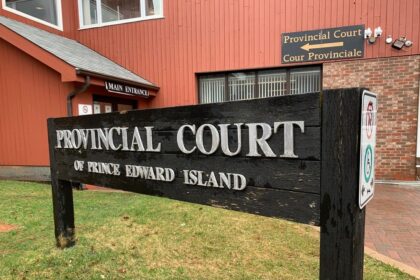OttawaProfessional Women’s Hockey League (PWHL) executives were the star players in the first day of a marathon debate about the Lansdowne 2.0 redevelopment project. Women’s hockey executives say new arena wouldn’t have enough seating, but mayor says money is the real issueListen to this articleEstimated 6 minutesAmy Scheer, left, vice president of business operations at the Professional Women’s Hockey League, addressed a meeting of council’s finance and corporate services committee. (Francis Ferland/CBC)Professional Women’s Hockey League (PWHL) executives were the star players in the first day of a marathon debate about the Lansdowne 2.0 redevelopment project.Amy Scheer, the PWHL’s executive vice president of business operations, appeared at council’s finance and corporate services committee Wednesday and said there’s no way to make the proposed arena profitable for the Ottawa Charge. The new arena would have 5,850 seats. She said that’s about 3,000 less than the current capacity for the team and far less than the roughly 8,400 tickets the team can sell on a weekend. She said the seating cut would be “debilitating for business.”“Even with a great lease agreement, where it’s good for OSEG and it’s good for us, there’s still not enough seats. That impacts the entire business,” she said, referring to Ottawa Sports and Entertainment Group, the city’s partner in the Lansdowne redevelopment.“We’ve tried every single way to take what OSEG negotiated and try to find a way to make money with that, and we just couldn’t.”She said all the league wants is a “seat at the table” to talk about capacity going forward. If that doesn’t happen, she said the PWHL would have to consider all of its options, whether that’s the Canadian Tire Centre or moving the Ottawa Charge out of the city.Scheer said the league would prefer the current 58-year-old arena at TD Place, for all its faults and limitations, rather than the proposed arena with fewer seats.The committee is set to hear from almost 90 speakers arguing for and against the $419-million project. The meetings are expected to take three days, before the plan heads to council next week for a final decision.Mayor says $1-million gap the real issueMayor Mark Sutcliffe pushed back against Scheer’s arguments during Wednesday’s meeting, saying the PWHL is simply trying to negotiate a better lease with OSEG for the arena. In those talks, he suggested, the number of seats is far less important than the bottom line.He asked how wide the gap is between OSEG and the PWHL. Scheer said it’s about a million dollars a year.“What I had asked for in the negotiation was a revenue share of naming rights and sponsorships that are sold to the building equal to the percentage of our games there,” she said.“I think that would help us from a revenue standpoint get to a point where we’re comfortable and make up for the lack of capacity.”OSEG CEO Mark Goudie told media that the deal on the table is already a good one for the PWHL. He said the new event centre will open up new ways for the PWHL to make “significantly more money,” including by selling suites and club seats at higher prices.He said making up that million-dollar gap is an expensive proposition, since the money would come out of the partnership the city is counting on to help pay for Lansdowne 2.0.“A million dollars to us means that’s the partnership, OSEG, writing a cheque to the PWHL, which I don’t think is prudent,” he said.But he said OSEG will continue the talks.Sutcliffe said it would make more sense to tackle the problem in those talks, rather than redraft a massive redevelopment plan to accommodate a single tenant of the arena — especially one that can’t commit to a long-term lease beyond 2031. “The number of seats is not really the issue…. The gap is a financial gap, not a gap in terms of the capacity of the arena,” he said at a press conference during a break in the meeting.“If there are ways to bridge that financial gap going forward, I strongly encourage OSEG to continue the conversations with the Charge. I strongly encourage the Charge to keep bringing up ideas on how that gap could be bridged.”Councillors say billionaire owner should payCity staff estimate that it would cost between $80 million and $100 million dollars to add 2,000 or more seats to the proposed arena. It would also set back work on the project by about two or three years, they told councillors in a memo, essentially killing the plan in its current form.Orléans West-Innes Coun. Laura Dudas faulted the PWHL for going public with their concerns at the last minute in what she called a bid to “blow up our entire project.”Other councillors asked why the PWHL couldn’t help cover the cost, given that its owner, Mark Walter, has a net worth estimated in the billions and manages Guggenheim Partners, an investment fund with hundreds of billions of dollars in assets.“If the potential investment of up to $100 million to increase the capacity to help meet your needs is a little less than one per cent of the personal net worth of the owner of the PWHL, perhaps there’s a conversation to be had there,” Rideau-Jock Coun. David Brown told Scheer.Scheer said the PWHL would be looking for a return on that kind of investment, and that would need to be hashed out in further talks.Kanata North Coun. Cathy Curry said it certainly shouldn’t be up to the city to foot the bill.“We are a municipality that is trying to support women’s sport, and we have an American billionaire who owns the Dodgers and the L.A. Lakers asking us to invest more,” she said.ABOUT THE AUTHORArthur White-Crummey is a reporter at CBC Ottawa. He has previously worked as a reporter in Saskatchewan covering the courts, city hall and the provincial legislature. You can reach him at arthur.white-crummey@cbc.ca.
Wednesday, 4 Feb 2026
Canada – The Illusion
Search
Have an existing account?
Sign In
© 2022 Foxiz News Network. Ruby Design Company. All Rights Reserved.
You May also Like
- More News:
- history
- Standing Bear Network
- John Gonzalez
- ᐊᔭᐦᑊ ayahp — It happened
- Creation
- Beneath the Water
- Olympic gold medal
- Jim Thorpe
- type O blood
- the bringer of life
- Raven
- Wás’agi
- NoiseCat
- 'Sugarcane'
- The rivers still sing
- ᑲᓂᐸᐏᐟ ᒪᐢᑿ
- ᐅᑳᐤ okâw — We remember
- ᐊᓂᓈᐯᐃᐧᐣ aninâpêwin — Truth
- This is what it means to be human.
- Nokoma


